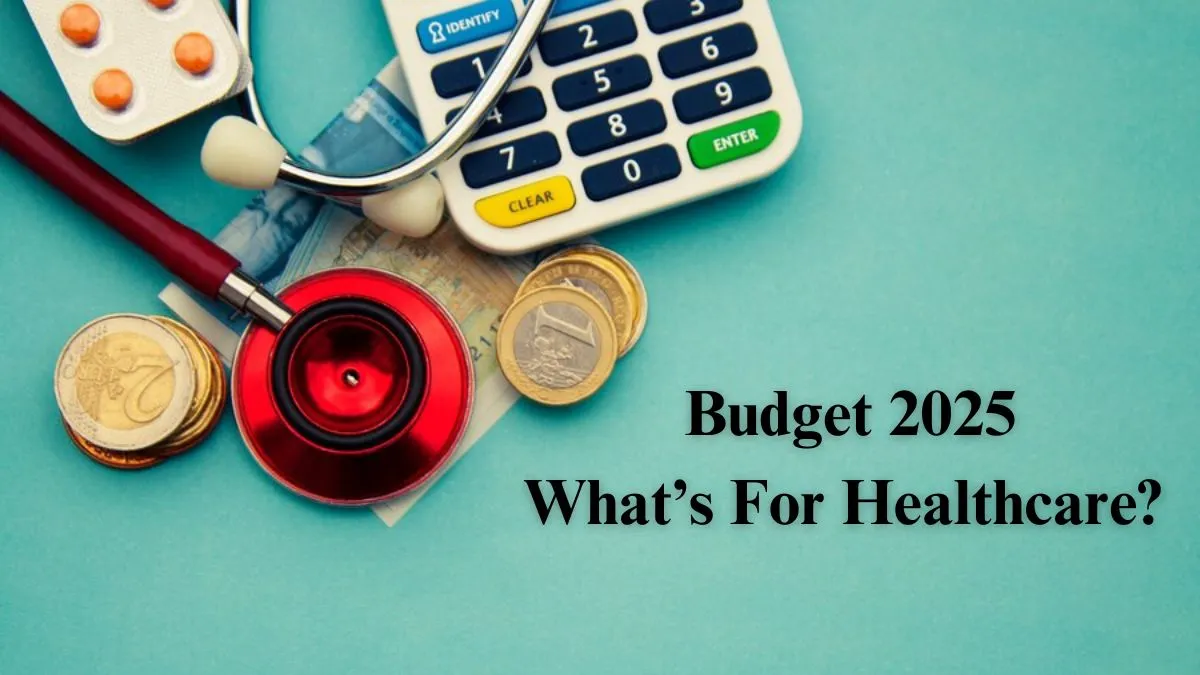
The Union Finance Minister Nirmala Sitharamam presented the 8th consecutive budget at the Parliament today. While the biggest takeaway has been the tax-related reforms for the middle class, a few key announcements for the healthcare sector will play a crucial role in its growth. The budget introduced measures to strengthen India's healthcare system, focusing on preventive care, digital health, and healthcare access for underserved regions.
Table of Content:-
Establishment of Cancer Centres
In a significant boost to cancer care, the government plans to set up daycare cancer centres in all district hospitals nationwide. As part of this initiative, 200 daycare cancer centres will be established in the next fiscal year, 2025-2026.
According to the Indian Journal of Medical Research, cancer cases are projected to rise by 12.8% in 2025 compared to 2020. The establishment of these centres will help in facilitating early detection and treatment for cancer, thereby increasing the survival rates. The establishment of these centres is a key component of a comprehensive strategy to deliver cancer care closer to home, eliminating the need for patients to undertake lengthy and often burdensome journeys to urban treatment hubs.
Medicines, Drugs, Nutritional Support, and More
"Other announcements, such as the customs duty waiver for 36 lifesaving drugs for cancer, full exemption and concessional customs duty waiver on 6 more drugs used for manufacturing such medicines will play a key role in enhancing the availability of such drugs in the country. This has also been complemented by the government by announcing new National Centres for Skilling as well as providing scholarships for technological research and innovation," said Dr Aditya Kelkar, Director, NIO Super Specialty Hospital.
The government also plans to increase funding for nutritional support programs, including Saksham Anganwadi and Poshan 2.0, which provide essential nutrition to over 8 crore children, 1 crore pregnant and lactating women, and 20 lakh adolescent girls, primarily in aspirational districts and the northeastern region.
Sitharaman also announced that gig workers will be provided healthcare under PM Jan Arogya Yojana. This will impact 1 crore gig workers.
Additionally, the centre plans to boost medical tourism and the 'Heal in India' initiative through strategic partnerships with the private sector. This collaborative effort will focus on capacity building and streamlining visa norms to attract international patients seeking quality healthcare services in India.
“The budget’s focus on medical tourism is a welcome step by the government. The Heal in India initiative will enable millions of foreigners to access India’s world-class medical infrastructure while allowing the private sector to contribute its expertise in patient care. With specialized eye surgeons and state-of-the-art technology available, this is great news for those seeking advanced eye surgeries in India,” said Dr Jay Goyal, Eye Surgeon, Surya Eye Hospital, Mumbai.
Medical Education To Be Expanded
The finance minister's announcement to add 75,000 new medical seats over the next five years is a major milestone in the country's efforts to strengthen its healthcare ecosystem. This move builds upon the government's previous efforts, which have led to a 100% increase in undergraduate and postgraduate medical seats over the last decade, resulting in 1.1 lakh additional seats. Furthermore, an additional 10,000 seats will be created in hospitals and colleges by next year, marking a substantial expansion of medical education infrastructure.
“The budget also places a strong emphasis on advancing medical research and innovation. The government’s focus on genetic research, biomedical sciences, and future nutrition will play a pivotal role in strengthening preventive healthcare strategies, ultimately reducing the strain on the nation’s healthcare system. The establishment of a National Depository System for sharing Indian healthcare data will foster collaboration and innovation across the healthcare ecosystem, benefiting patients nationwide,” said Dr Manisha Bobade, CEO, KJ Somaiya Hospital and Research Centre.
"While all these announcements will be greatly beneficial for general medicine in creating the required manpower, maintaining the infrastructure will play a key role in the success of these programmes and initiatives," concluded Dr Kelkar.
Also watch this video
How we keep this article up to date:
We work with experts and keep a close eye on the latest in health and wellness. Whenever there is a new research or helpful information, we update our articles with accurate and useful advice.
Current Version